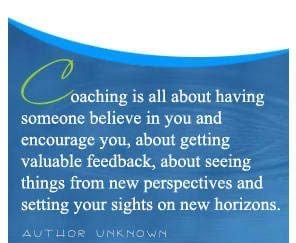Feb 12, 2021 in Life Coaching
Critical Thinking Questions to Solve Problems
Expands the thinking scope of readers and guides them in problem solving skills.
It's your turn now! Let's support each other by clicking "Helpful".
+1

DISCUSS #Relationship
DISCUSS #Parenting
Critical Thinking Questions that could help you study your problem clearly and solve it with ease.
1. What caused the problem?
2. Why it is seen as a problem?
3. How the problem affects you?
4. What was the root cause of the problem?
5. Who was involved?
6. Three Direction Analysis: Observe and study the situation, the people involved and yourself, in the problem.
7. Are there any assumptions, biases and unresolved personal issues that made you relate to the problem or arrive to the solution in this way?
8. Are there any concrete evidence to the problem? Did it happen due to logical fallacy?
9. Did you explore the problem with reasons radically or rationalised it at surface level to your personal benefit?
10. What did you learn from the problem?
11. What could you do better in future to mitigate the challenges in the problem?
12. What were the attempted solutions and what methods were deemed unworkable?
13. Do you apply complex solutions to complex problems? Or simplifying is better?
14. Were you rigid in your problem solving? Did you apply lateral thinking?
15. What do you expect from the solutions?
16. Will the solutions meet your needs and benefits?
17. Process your thoughts, feelings, actions and behavior during the time of the problem. Were you calm and conscious? How could you manage your emotions better next time? Did it affect you physically, mentally and emotionally?
18. Did you write down your proposed solutions? What were the pros and cons of each solution?
19. If the problem continues to exist, how would that impact you and the people involved?
20. If you cannot solve the problem, how are you going to manage it?
21. What are the opportunities, exceptions, competencies and possibilities in the problem that could be used for your personal growth and benefits? What are the less useful ingredients in the problem that you wish to discard?
22. From a scale of 0 to 10, where was your confidence level during the time of the problem? Were you nervous and anxious? Why you felt in that way?
23. Did you assert yourself? Or avoided? Or used aggressive methods to deal with the problem? Why did you chose that method? Did the method you chose helped you to cope with the problem?
24. Did you use flight, fight or 'let go' response/reaction?
25. Did your methods solved the problem, aggravate it or placed you in a state of homeostasis?
26. What changes could you do for yourself to create better solutions?
27. Do you come up with borrowed solutions or the solution ideally belongs to you?
These are generally some questions you could ask yourself. You can use this as a guide and also add your own questions that best fits your situations.
If a significant amount of time is spent in studying a problem, it will help us in finding the most appropriate solution.









 Thank you for your help!
Thank you for your help!